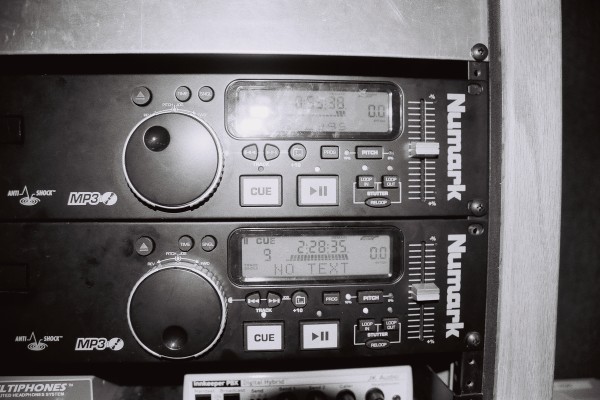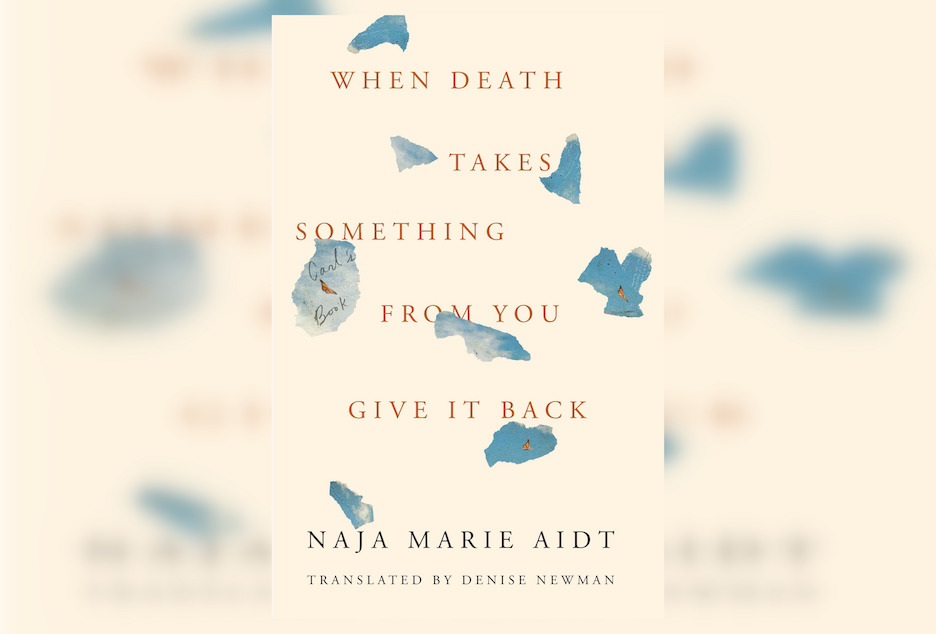Nonfiction by Phillip Pantuso
—
The first time I came to New York City for any extended period of time was in the summer of 2007, when I impulsively registered for a creative writing course at NYU. I was 21, on break from the University of Texas, and in love: with the idea of myself as a writer, and with a high school-turned-college girlfriend who had broken up with me about six months earlier. She was an aspiring actress, attending the Tisch School of the Arts at NYU. We’d tried the long-distance thing for a while, but in the end, it wasn’t going to work. She recognized that about a year before I finally did. I took it hard; she was the first girl I had ever been in love with, a beautiful and mercurial free spirit. We remained extremely close after the break-up, mostly because I lived across the country, and sublimated my true desires into an obsequious friendship.
Right before I left Texas for Manhattan, she told me that she would be spending the summer studying abroad in Ireland. I had been telling myself that the reason I was coming to New York was to find out if I could hack it there, but I quickly realized that had been a secondary consideration. Now there was no chance of patching things up with my ex, and I began to wonder what I was doing in New York. Why was I spending all this money for a writing workshop? Who was I fooling? I spent a lot of time those first few weeks visiting museums alone, talking on the phone for hours with my best friend and my mom, and reading in the one-bedroom East Village dorm I shared with a business/pre-med student from the University of Southern California named Josh. Josh had come to NYU, it seemed, to party and work. He was an on-campus salesman for AXE body spray back at USC, but that summer, he’d scored an internship at an investment management firm near Times Square.
Josh recognized that I was lonely, and one night, he invited me out with a group of his friends who were visiting from California. We went to a night club in Chelsea, the kind I would have been rejected from if I hadn’t been in a large group that included several attractive women. Inside, there were dancers on elevated platforms, plush, leather-upholstered booths, and buckets with bottles of Ciroc and Grey Goose on ice. I’d never been to a club with table service before; I am the dive bar/biergarten variety of drinker. About halfway through the night, I lost track of Josh, and eventually headed home. The next day, he told me that our table had racked up a tab in the thousands of dollars, which his friends, apparently, had little trouble covering.
Things started getting better. My roommate in Austin visited for a weekend, and my cousin took me to Coney Island, where we rode the Cyclone, ate at Nathan’s, and took in a minor league baseball game.
Then, one day on campus, I spotted a flier posted by someone “physically disabled, but mentally able” looking for a “steady pair of hands to transmit the essays and stories trapped inside [his] mind.” A ghostwriter. I called the number at the bottom of the flier and left a message.
The next day, a man named Myron Blackman called me back. He had multiple sclerosis, a degenerative disease that destroys the myelin that insulates nerve fibers, leading to a loss of muscle control. Myron’s MS was chronic-progressive, which means exactly what it sounds like: each day, he had less control over his body than the previous day, and he would never get better.
“I’d like to get to know you first, before we do any writing, so how about you come over this Friday?” He spoke with a waver and very slowly, haltingly. I had trouble making out the words.
On Friday I showed up to a blaring radio and a thin man with tousled brown hair sitting in an orthopedic chair in front of an old computer. It was hard to guess his age—maybe 60? He had a thin face with accentuated cheekbones, round red wire glasses, and a stack of manuscripts in his lap, which I leafed through. They were good, really good. We talked for thirty minutes, mostly about writing, and then I left.
The second time I saw Myron was the following Monday. He described a plan for an essay “about relationships,” and how he had lost his buddy many years ago. He began dictating, slowly: “I was the fastest kid in the neighborhood. Boy, was I fast. Except, maybe, Bobby S. was a little bit faster than me. God, was he fast. But other than him, I was the fastest.”
“New paragraph,” he said.
He went on, describing a spell of dizziness he experienced while playing football. I asked simple questions like “comma?” or “question mark?” which gradually seemed less and less important in light of what I realized this essay was actually about. Body. Not buddy. That’s what he’d said. He’d lost his body. He no longer had a relationship with his arms, legs, hands, feet.
The meanings of his sentences became clear to me before he finished them, and he always spoke with the same consistent pitch and diction. I would sit there stupidly nodding or exhorting one word exclamations to fill the weird twilight zone between period and capital letter, new sentence.
After two hours, we stopped working. His live-in assistant had left when I arrived, and I felt bad about leaving him alone. So I asked about his life. Myron was in his fifties, a native New Yorker, and a former high school teacher of English and film. He’d had MS for almost forty years, but explained that it went undiagnosed until he was in his mid-thirties, when the dizzy spells and shaky hands became too common to be ignored. He was living in Hawaii with his wife at the time, who had always wanted to live there. They moved back to New York, for treatment, and divorced a few years later; he said that the MS “probably had something to do with it.”
He told me about the radio play he’d written that was performed in California, and the intermittent teaching he’d done. He wanted to read the new Isabel Allende novel, and his favorite movie was To Kill A Mockingbird, so we talked about Gregory Peck for a minute, before I had to leave for class. I was reluctant to leave and wondered what he did all alone, practically immobile, but he asked me to turn on the radio and the room was filled with noise. I’d never fully appreciated the joys of radio until then.
We met weekly for a month, and it always began the same way: I knocked, his assistant answered the door, I turned off the radio, she left, I greeted Myron and Myron greeted me, I cleared a space on the right-hand side of the desk, I pulled the keyboard over, I opened up Word Perfect, he told me what he was thinking about that day, I realized I was too far away to hear him, I scooted the chair closer and leaned in, we began.
On our last day together, he told me about hiking a ridge in Hawaii with friends, whom he separated from when he realized he couldn’t do the hike the way they could. They didn’t yet know the extent of the disease’s progression. He’d had to crawl much of the way back down the ridge. Myron segued into a story of a mesa he hiked in Arizona, after leaving Hawaii. He reached the steppe with dirty palms and scuffed jeans and snapped a picture of himself, overlooking the sandy red Arizona desert. The photo was on a nightstand Myron’s bedroom, faded with crinkled corners: a skinny man in profile, long black hair blown back by the wind, his arms wrapped around his pulled-up knees, gazing off at something in the distance. He was almost unrecognizable from the man who took up considerably less space as he sat in the other room, whose hands trembled and whose legs were bunched underneath a blue blanket, whose black hair was now streaked with gray. Only the opal eyes gave him away, dark and thoughtful behind wire frame glasses, looking off through the window when I re-entered the room.
In New York, he had purchased a cane and named it Fred. It was an homage to Fred Astaire. He described how he would swing his cane from one side to the other and mentally enact a precise series of dance steps, tap-tap-tap, swinging his Ginger Rogers in her billowing skirt to and fro. But his balance was quickly deteriorating, and he soon had to abandon Fred.
Myron then reluctantly bought a scooter. He was still trying to conceal his MS, and the scooter allowed him to go everywhere, and he was fast again. He scooted to Central Park and zipped to his favorite bookstore and whizzed through traffic jams. He went down to the World Trade Center site a few weeks after the towers fell, and felt like a tourist again, a spectator to an event that made his own city feel foreign because of the gaping hole and the men with hardhats and all the metal and concrete and the bad vibes, he said, which hung over the place like poison. With the scooter, he could go anywhere, but now he realized there were some places he didn’t want to go. I thought a lot about that last line when I packed up my stuff and left New York a few days later.
Looking back on it, I’m grateful for that summer, hard though it was at times. I never did get back together with that ex-girlfriend, and I gave up the idea of being a fiction writer shortly afterward. I never saw Myron again. But the lessons I learned have stayed with me on my second extended stay in New York, which is now thirteen months long and counting. It’s easy to slide into loneliness in this city, to take for granted all the bewildering and amazing things to do and see, to sink from starry-eyed optimism to shut-in cynicism. But oftentimes I have found the best tonic is to just leave my apartment. To put myself in motion.
—
Phillip Pantuso has written for The New York Times, Bedford+Bowery, Esquire.com, Paste, and BKYLNR. He lives in Brooklyn.
—
Featured Image photograph by E.B. Bartels, www.ebbartels.com.




